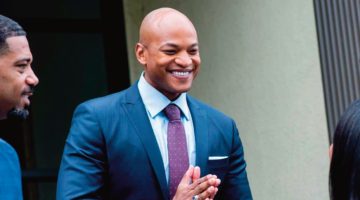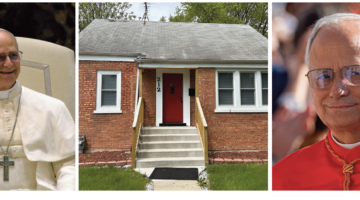 Most great things are built upon a promise from God, the architect and builder of the universe.
Most great things are built upon a promise from God, the architect and builder of the universe.
In II Samuel (7:1-13), David reflects upon his life after God has removed him from hiding in the wilderness. After victory over his enemies, David finds himself living in a palace, as king of Israel.
Moved by his changed life, David asks, “Who am I to live like this, when the Ark of God lives in a tent?”
Nathan encourages David, saying, “Go do all that is in your heart, for the Lord is with you.” God asks Nathan to convey to David a divine promise, “I will raise your offspring …and He will build a house for my name.”
At issue for the people of Israel at that time was the future of Jerusalem, and the successor to David. Michal, wife of David and daughter of Saul, was not destined to bear children.
Scripture implies in II Samuel (6:20) that God was displeased with Michal’s mocking of David’s praise dance. The succession issue is tied to the Hebrew word “bayith,” which can mean either “house” (dynasty) or “temple.”
God’s prophecy to David summed the importance of dynasty: “You are not to build a ‘house’ for God, but He will raise a ‘house’ for you.”
God is less concerned with the building of a house, telling David, “My son (Jesus) will build it.” God makes it clear that it is His son who will construct the future, but David focuses upon his own offspring. David plans for the temple that Solomon, his heir, will build.
It was clear that David was God’s anointed leader. What are the signs today of anointed leadership? They reside in the process by which leadership arises.
David, in his ascent to the throne, did not meddle in God’s affairs, nor break any of God’s laws. In spite of war, David avoided killing Saul, and avoided killing all of God’s other appointed leaders. David understood that God would lift him up at the appropriate time.
Today, God would not have us worry about constructing buildings, but rather about building with His people.
We see the fulfillment of God’s promise with the resurrection of Jesus, without whom we would not have His “house” upon which to build. Without Christ’s resurrection, we would doubt that God keeps His promises.
We are all called to share the Good News, but we are not responsible for the acceptance or rejection of it. Neither is it our job to convict another of sin. That is the province of the Holy Spirit. It is our job, however, to speak out about Christ’s sacrifice with sensitivity, knowing when to let God’s Word, and the Holy Spirit, convince others.
In scripture, we find people crying out, asking, “What must we do?” We must each ask ourselves “What must I do?” It is not enough to be sorry for our sins, we must also let God forgive them, as we must forgive others. We must learn to live like forgiven people.
Before building upon God’s promise, we must first build His people. We must “repent,” or turn from sin, away from selfishness and rebellion against God’s laws. As we turn from sin, we must turn toward Jesus, depending on His forgiveness, mercy, guidance and purpose, remembering that we cannot save ourselves or others—only God can do that.
The Rev. Dr. R. Joaquin Willis is pastor of the Church of the Open Door at 6001 NW 8th Ave., Miami. To contact the church, call 305-759-0373 or email the pastor at pastoropendoorc@bellsouth.net.












No Comment